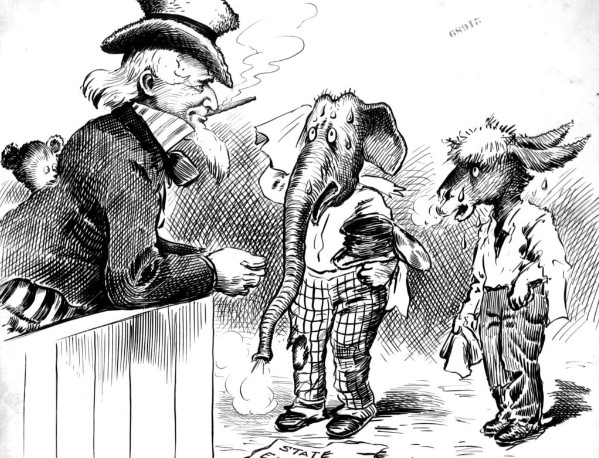Nihilism: The Philosophy of Nothingness
Nihilism, a philosophy of negation, derives its name from the Latin word 'nihil,' meaning 'nothing.' In its most extreme form, nihilism advocates the belief that life lacks objective meaning, purpose, or intrinsic value. It rejects moral truths and often questions the existence of knowledge and reality itself. Nihilism posits that traditional values and beliefs are unfounded, rendering existence senseless and futile.
The term 'nihilism' was first introduced by Friedrich Heinrich Jacobi (1743-1819), a German philosopher. However, it gained significant attention through the works of Friedrich Nietzsche, a German philosopher of the late 19th century. Though Nietzsche himself was not a nihilist, he delved into nihilism and its possible societal implications. He anticipated that society's heavy reliance on religion and transcendental metaphysics would ultimately lead to nihilism, a condition he regarded as potentially destructive yet transformative.
There are several variations of nihilism, each with its unique emphasis and degree of negation:
- Existential Nihilism: This is perhaps the most well-known form of nihilism. Existential nihilism asserts that life lacks intrinsic purpose or value. The vastness of the universe, the brevity of human life, and the randomness of birth and death all contribute to this belief.
- Moral Nihilism: Also known as ethical nihilism, this form rejects the existence of absolute moral or ethical values. It asserts that notions of good and evil are subjective, and that morals are human constructs subject to change.
- Epistemological Nihilism: This variant of nihilism challenges the possibility of knowledge and truth. Epistemological nihilists argue that certainty is unattainable, fostering skepticism towards universally accepted truths and facts.
- Metaphysical Nihilism: This form of nihilism posits that concrete objects and physical constructs might not exist at all, suggesting the possibility of a reality entirely different from our perceptions.
While Friedrich Nietzsche (1844—1900) is often associated with nihilism, his relationship with the philosophy was complex. He saw the rise of nihilism as an inevitable consequence of societal and moral changes. According to Nietzsche, the 'death of God' – a metaphor for the decline of religious faith and the abandonment of moral absolutism – would lead to a crisis in values, culminating in nihilism.
Nietzsche viewed this scenario as catastrophic, but also as an opportunity for a reevaluation of values. He proposed the concept of the 'overman' (Übermensch) as an idealized human being who could rise above conventional morality to create a new, affirmative value system, thus providing a counterpoint to nihilism.
Nihilism is often associated with pessimism due to its rejection of purpose and value. However, it can also be seen as liberating. By rejecting imposed values and meanings, it allows individuals the freedom to construct their own. This aspect of nihilism has been used to argue for personal autonomy, freedom of thought, and skepticism towards dogma.
Despite this, unchecked nihilism can lead to despair or apathy. If life is devoid of meaning, then actions, ambitions, and relationships might seem pointless. This can lead to existential crisis, depression, and in extreme cases, a denial of life's worth.
Nihilism, existentialism, and absurdism are all philosophies that grapple with life's inherent meaninglessness. However, they differ in their approach and conclusions.
Existentialism acknowledges life's apparent lack of meaning but argues that individuals can and should create their own purpose. Existentialists like Jean-Paul Sartre and Albert Camus maintain that humans are 'condemned to be free,' that we have no choice but to make our own way in a universe devoid of predetermined purpose or moral structure. While this might seem daunting, existentialists view it as an opportunity for authenticity and individualism.
On the other hand, Absurdism, most famously associated with Camus, embraces the tension between human beings' tendency to seek inherent value and meaning in life and the human inability to find any in a purposeless, meaningless, or irrational universe with the absence of God. Absurdists argue for the acceptance of the absurdity of existence, and continuation in spite of it.
While all three philosophies respond to the human struggle for meaning, they offer different ways of dealing with the perceived emptiness of existence. Existentialism and absurdism offer a form of resistance, a way of living in spite of meaninglessness, while nihilism remains in its firm stance of negation.
Nihilism has had a significant impact on a range of cultural and artistic movements, particularly in the 20th century. The disillusionment following World War I and II gave rise to literary and artistic expressions of nihilism, as faith in progress, humanity, and conventional values was shattered.
In literature, nihilistic themes can be seen in the works of authors like Ernest Hemingway, Fyodor Dostoevsky, and Samuel Beckett. Their characters often grapple with a sense of despair and emptiness in a world devoid of meaning.
In philosophy and critical theory, nihilism has been a central topic of debate and analysis. Postmodern thinkers often engage with nihilistic ideas, questioning grand narratives, objective truth, and absolute values.
In film, television, and music, nihilistic themes are also prevalent. From the cynical perspectives of noir films to the aggressive lyrics of punk music, expressions of nihilism pervade contemporary culture.
Nihilism, in its assertion of life's meaninglessness, challenges individuals and societies to confront the most fundamental existential questions. Its negation of inherent purpose, morality, and even reality can be disconcerting, even destructive. However, it can also spur introspection, critical inquiry, and a reevaluation of values.
Though nihilism might seem bleak, it is part of a broader philosophical conversation about the nature of existence and the human search for meaning. Its full implications – whether destructive, liberating, or transformative – hinge on how one navigates its profound questions.
In the words of Friedrich Nietzsche, "I praise, I do not reproach, [nihilism's] arrival. I believe it is one of the greatest crises, a moment of the deepest self-reflection of humanity. Whether man recovers from it, whether he becomes master of this crisis, is a question of his strength!"










